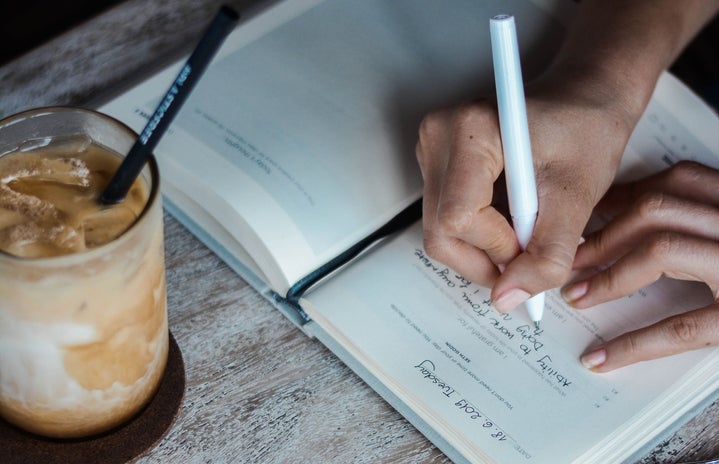I started my first journal when I was 6 years old. Through the years, the way I journal has transitioned from a way to document my life to an important tool to process my emotions. Here are my favorite ways to journal and how they’ve taught me to both reflect on and appreciate every moment I can.
The first way I ever began to journal was by writing about my day. Even as a child, I felt as though there were endless things to document. Being able to look back on my entries as a young girl is so special, and a big reason why I continue to write about my days in this way even into adulthood. Writing about what’s going on in your life and how you feel about people, events, and experiences is so valuable to your future self. It also helps me to process different stages of my life. Looking back at entries going into college and my anxiety versus now really helps put things in perspective for me. Something that may have seemed like the end of the world then becomes unimportant two years later. Reading old entries reminds me that whatever I’m struggling with now is temporary, and in a few years I’ll look back and realize things were always going to turn out alright. Narrating your life story through journaling is something so personal and precious to look back on as you age. Even if you only write once a month, you’ll have so much to look back on and reflect on the ways in which you have grown.
Processing my emotions through writing has been one of the most important things I’ve learned to do in journaling. I began to write about how certain situations made me feel, and instead of only describing the events of my days, I started to dissect why my moods were changing. I like to write in a stream of consciousness first to get everything out of my system. After that, I write down all of my worries and stressors, leaving a few lines beneath each one. In this space, I determine if the problem is solvable or something that doesn’t have a solution yet. For example, if I am stressed about an exam, I’ll write down the steps I’m going to take to prepare for it. When I can’t think of how to move forward, I’ll write down a few affirmations to keep myself on track. Reminding myself that stressors are temporary and seeing my worries written down helps me to acknowledge what I’m thinking about, rather than ignoring my feelings and letting things build up. This especially helps with a busy school and work schedule when I’m constantly occupying my mind with these priorities. Putting aside even just 10 minutes allows me to ground myself and organize my thoughts.
Gratitude journaling has been one of the best ways I’ve found to maintain a positive outlook on life. Slowing down and appreciating what you have can really make you take a step back to value every moment. There are a lot of gratitude journals that are currently trending, but really all you need is a pen and paper. Even if you’re just jotting down these thoughts a few times a week, you’ll start to feel more present throughout the day. I write down three things I’m grateful for, and three things I’m looking forward to. These don’t have to be large events— sometimes I write down that I’m looking forward to cuddling my cat, and other days it’s seeing my friends. You can be grateful for small things, too, which I actually find helps me appreciate life more. I like to think about how I’m grateful for the sun, my education – even a pretty rock I found outside. Everything can have value, it just comes down to noticing your surroundings and how special it is to have access to them. This exercise has taught me to enjoy even the more mundane moments in life— like waiting in line and doing dishes. When we take a moment to appreciate what we have, we wire ourselves to love everything a little more.
Writing letters to myself has been my favorite form of self-reflection. It can be emotional, but I’m left with a great feeling of peace afterward. I write letters to both my past and future self. What field of study am I interested in? What is my favorite book? Song? Who do I talk to on a daily basis? What are my hobbies and passions? What do I want past and future versions of myself to know? These letters are a great way to get to know yourself and examine your current goals. It is also a wonderful way to practice self-love. I have also written letters to late loved ones that have helped me to process grief and even letters to people who may never receive them. I have found this to be such a unique way to process my emotions and figure out how I truly feel.
Journaling has taught me to live a slower, more present life. I have learned so much about myself just by writing my thoughts down. I know that looking back on old entries in a few years will be so nostalgic and special, but will also be a source of pride in my growth and accomplishments. If you have never journaled before, I highly recommend starting. You don’t need fancy stationery or any writing experience – just start a conversation with yourself and get to know the person you spend all of your time with.

